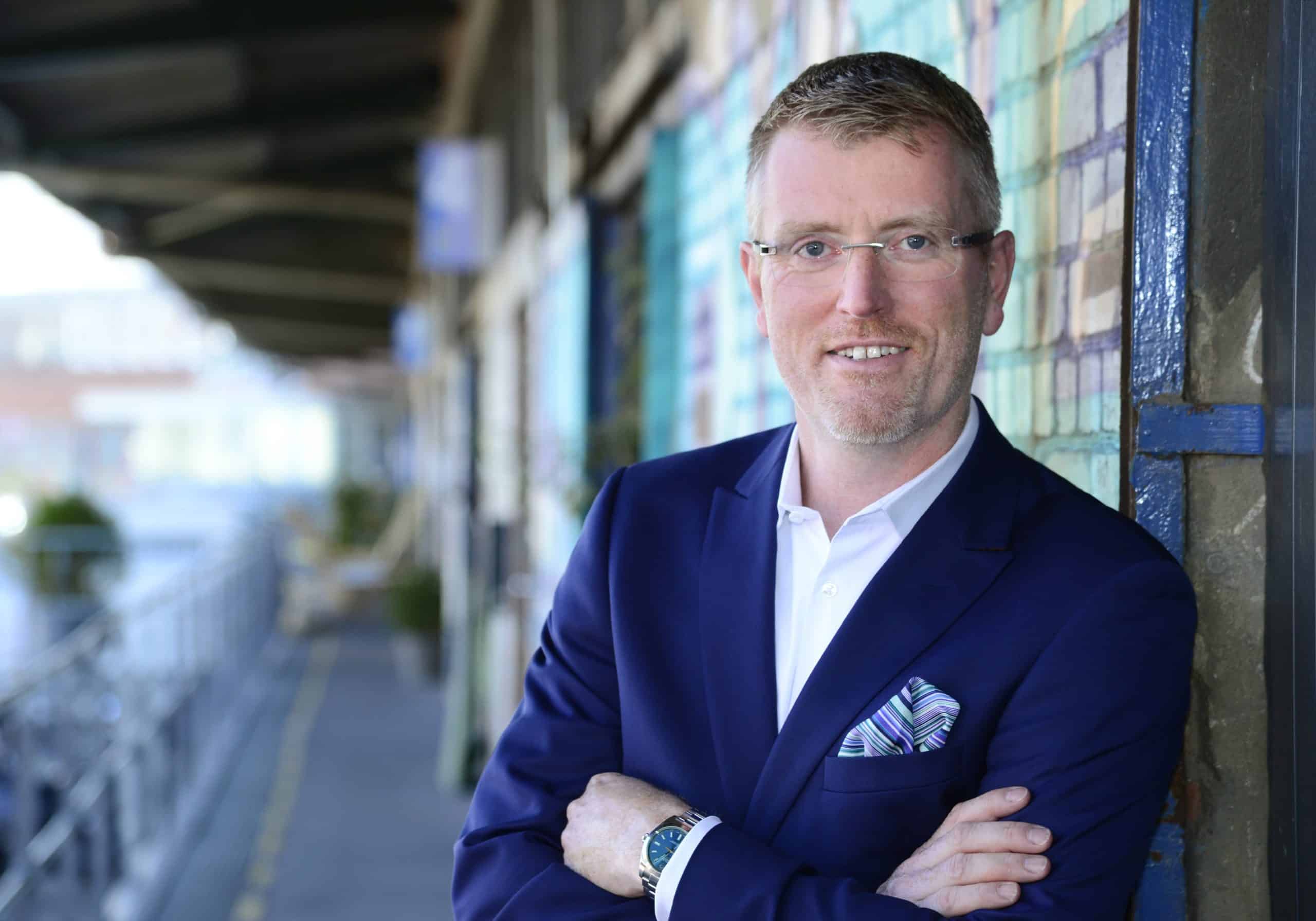- 19. September 2022
Green retail real estate: from "nice to have" to "must have"?
Interview with Jörg Wege, Head of Strategic Development, MEC MEC
ESG is currently on everyone's lips. One can get the impression that anyone who does not deliver convincing sustainability concepts will soon no longer play a role in the real estate industry. To be there or out of the window, is this black-and-white idea true?
Jörg Wege: This is indeed the impression one can get from the current discussion. In view of the major contribution that the real estate industry, and existing properties in particular, must make to achieving the 1.5-degree target of the Paris climate agreement, swift action is absolutely essential. However, with a modernization rate of less than five percent annually, we in the real estate industry are a long way from achieving the climate targets. For decades, evidence of climate change has not led to sufficient behavioral adjustments. Unfortunately, the real estate industry is no exception. Now the EU wants to regulate it, or better regulate it. Globally, too, the first, albeit delicate, approaches are beginning to emerge. Unfortunately, there is still a lack of speed. This is shown to us by the images of the last burning primeval forests, spreading infertile deserts, melting ice sheets and permafrost, and not least the oceans polluted with plastic waste. And these are just the media blockbusters of climate change. With the recent floods, at the latest, the effects have also arrived on our doorstep.
Apart from the regulatory constraints that will lead to a rethink and also action in large parts of the real estate industry, against this background we should all hope that a rethink is achieved across society. If this can be achieved, given how much everyone is affected, then inaction on sustainability is likely to lead to disadvantages across the industry in the future.
A pale duckling does not become a beautiful swan overnight. Many retail properties are getting on in years and are not very sustainable. How do you assess this investment backlog in view of the EU taxonomy?
Jörg Wege: That's certainly true, especially when you realize that, according to BuildingMinds, 80% of buildings in 2050 already exist today and cause 40% of all global emissions. So existing properties have to come into focus, and this is especially true for retail properties. Even before the taxonomy was introduced and without considering decarbonization targets, various market participants agreed that 2/3 of all retail properties have a modernization or even maintenance backlog. In addition, there is a need for adaptation resulting from structural changes in the retail sector. Changing customer requirements, their buying behavior and the resulting changes in retailers' space, quality and location requirements are triggering extensive adaptation needs. The pressure to invest is growing strongly, and this is happening at a time when productivity per unit area and rents are falling in almost all retail segments.
In addition to the ESG strategy, what important fields of action do you see in order to make retail real estate fit for the future, and are these necessities currently being overshadowed by EU taxonomy?
Jörg Wege: The measures related to ESG, which currently relate almost exclusively to the E anyway, are currently an additional package of measures with budget and management requirements from preparation to implementation. Greatly simplified, one could imagine three levels of measures in the properties. Neither special nor new is the first level, where all capex and opex measures occur. Also not new for retail properties are all measures resulting from the need for adaptation in connection with retail use. As a result of the aforementioned structural changes in stationary retail in recent years, the pressure to take action at this second level of measures has increased significantly.
With ESG, the third level is now added, in which mostly all measures that can primarily contribute to compliance with the decarbonization path occur. The bad news is that even with partial support measures, it will not be possible to provide the funds for the overall investments required in the short term. The reasons for this are broad and range from structural requirements of the investment vehicles to the inability to finance the sum of necessary measures in larger existing portfolios.
Not a good outlook. But throwing our hands up in horror won't get us anywhere. Are there any ideas for solving this problem?
Jörg Wege: One approach can be a property-specific ESG roadmap. Here, a holistic goal is first developed for the individual location based on a sound data basis and taking into account the owner's investment strategy. Based on this goal, concrete packages of measures are developed that contribute to the achievement of the goal. A decisive factor here is, of course, the target date for finalization, as this determines the time available for implementation. Experienced operators of retail properties can simultaneously coordinate the measures of the above-mentioned three levels and thus leverage positive synergies. The implementation of the coordinated and approved measures is then in the hands of the local site management with the necessary property knowledge.
Sounds like a well thought-out approach. What advantages does the model offer?
Jörg Wege: The advantages of such a strategy are clear: the measures can be stretched to a concretely defined schedule - along the decarbonization path. Ideally, the current status of the property is known at all times. Even in the case of a transaction before the target is reached, it is thus possible to see which specific, final target is being pursued and which results have been achieved or which measures are still open. Such transparency should clearly support the required reporting. However, it must be clear: According to some experts, only a maximum of 15 years remain to meet the 1.5-degree target. Stretching the program of measures to 2050 is therefore not enough for the overarching global goal of limiting climate change. It has to be done faster. At the same time, it must be clear: The management requirements for retail real estate are increasing significantly and must include ESG as a central aspect.
Climate protection is only one aspect of ESG. In your view, are social and governance issues being neglected or are most players in the German real estate industry already well positioned in this respect?
Jörg Wege: In my opinion, the consideration of aspects S and G, i.e. social and governance, is a fundamental prerequisite for managing the necessary changes in society as a whole - in a sense, they form the bridge to broad sections of the population and thus the basis for changes in mindset in favor of preserving a planet worth living on. Less globally, two comments on the current situation: in terms of prioritization, environmental, as the E, is currently being concretized first. Here lies the greatest lever for saving CO2 and thus the direct influenceability of the essential cause of climate change. In view of the short time remaining to stop climate change within the 1.5 degree target, this prioritization seems more than logical.
The past years show that a concretization of criteria, uniform sets of rules, defined targets and, in case of need, sanctions are essential for the actual implementation of effective measures. Furthermore, measurable and resilient criteria and benchmarks for G and especially also for S are difficult to develop. However, the first published reflections of the EU already give an insight. This confirms the difficulties, but equally shows that many aspects in the area of social and governance are being taken up, which have been implemented at company level in the EU and even more so in the Federal Republic for years. Examples include comprehensive compliance rules or occupational safety.
ESG is a positive step towards a sustainable future. Do you believe that sustainable retail real estate not only protects the climate, but also makes the investment more lucrative in terms of consumer acceptance and rents?
Jörg Wege: Based on current knowledge, we must assume that not every existing retail property can be made climate neutral. Regardless of future criteria and their calculation method, we see many buildings that cannot achieve the desired climate neutrality, even with the greatest willingness to invest, even if all energy-related substance upgrades (material cycle) are utilized and locally generated regenerative energy (PV, wind, geothermal energy) is taken into account on balance. It remains to be seen how far the tendencies on the part of consumers to take sustainability aspects into account when choosing where to shop, and especially when shopping, will develop. Frankly speaking, this would be the most effective lever for the rapid implementation of sustainability measures, because the consumer continues to determine the yields of the retailers at the respective location with his or her decision.
The turnover of the retailers, i.e. the productivity of the space in relation to the location, determines the rent that can be achieved by the owner and is therefore a significant return factor. Personally, I do not see any increase in rents and thus returns in the current market situation, even with increased recognition of sustainability efforts by consumers. Conversely, with increasing demands not only on real estate and companies in the sector, but also on retail companies (driven by regulation and consumer behavior), the situation could arise that retailers pay attention to the sustainability of their rental properties when selecting them, in order to increase customer acceptance and avoid negative assessments in their own reporting. If a retail property fails to meet the corresponding expectations, the number of potential tenants is likely to be reduced at the very least and, in the worst case, a negative chain reaction may be triggered, culminating in market exit. The similar interests of the real estate industry and retailers therefore offer a good opportunity to work in partnership toward a common goal at an early stage.

